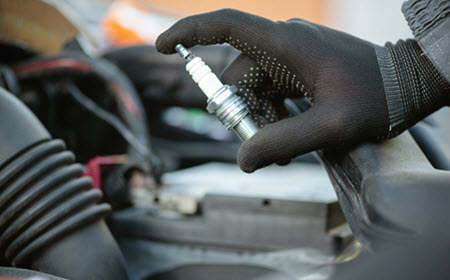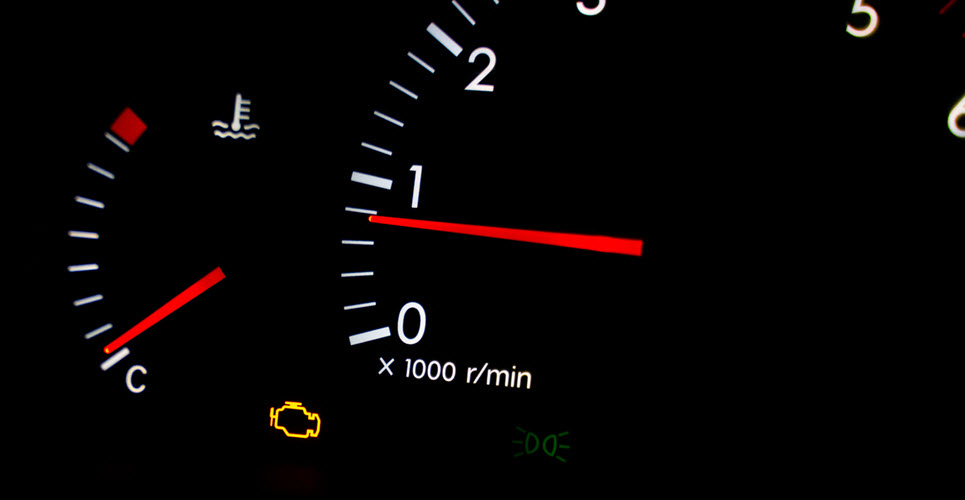One of the most confusing signals that appear on your dashboard out of the blue is the check engine light. It could easily mean a loose gas cap or major engine damage. The range of outcomes is what makes many car owners uneasy about this warning indicator.
If you’re like most drivers who know little to nothing about what to do when this yellow light turns on in your dashboard, then you’re in the right place. Ignoring this warning could mean you end up damaging expensive components, and no one wants that.
Reasons for the Engine Warning Light
The check engine light is a signal from the onboard computer that something is wrong with the engine’s components or its related systems. There are various reasons why the check engine light might come on, from benign to major:
- Loose gap cap: A loose gas cap is one of the very common reasons why your Porsche check engine light can come on. The gas cap is put in place to appropriately seal your fuel system. If loose, it could lead to an escape of fuel vapors. This should be the first thing you look at in your Porsche when the light comes on, check if it is tightly screwed then allow your Porsche to be reset.
- Faulty Oxygen Sensor: The oxygen sensor is in your Porsche to monitor the unburned oxygen in your exhaust. This further helps to regulate how much of your fuel you’ve burned. If this sensor is faulty, the mileage can decrease, hence the flashing light. It is imperative to fix this as soon as possible as delay can lead to further damage.
- Burned out Spark Plugs: After some time, you would need new spark plugs and wires for your Porsche, it is advised to change your spark plugs every 100,000 miles. The spark plugs are there to create sparks that further ignite the fuel and air components in the cylinder. A burned-out spark plug could mean your engines would fail and could even prevent your Porsche from running altogether if ignored.
- Faulty Catalytic Converter: The catalytic converter is an important part of your Porsche system. It transforms carbon monoxide into carbon dioxide through a process of combustion. If this problem is ignored, it could spiral into much bigger problems, such as your Porsche overheating, lack of quality engine performance, and poor fuel economy.
- Vacuum leak: This is not very common, but a vacuum leak could be the reason why your Porsche is flashing the check engine light. Every Porsche is installed with a vacuum that performs a wide array of functions. A leak could mean your car stalls, misfires, hesitates or idle faster than normal. It could also cause ruin to your engine parts if left unattended.
- Sensor for Mass Airflow: The mass airflow sensor, popularly called MAF, is a small but vital part of your Porsche. It is what informs your control unit to regulate the combustion of your engine depending on the amount of airflow. This information is what optimizes your engine performance. A dirty or clogged mass airflow sensor could be detrimental to your Porsche’s engine health.
Expert Diagnosis of a Check Engine Light Problem
Honestly, despite the aforementioned, it could be quite tough to determine on your own what exactly is causing the check engine light to come on,  especially if you have little to no knowledge about the rudiments of a Porsche system.
especially if you have little to no knowledge about the rudiments of a Porsche system.
If you’re unable to find the source of the problem, you should take it to the closest auto repair shop around you. If you happen to be in Birmingham or driving through Vestavia, Hoover, Helena, and Mountain Brook, do not hesitate to make a quick stop at Momentum Motorworks. Our service center is proud to help our neighbors in our area and the surrounding communities.
Our team has certifications and expert experience in German auto brands like Porsche, Mercedes, and Audi. With over 21 years in the business, we are an auto specialist agency with skilled professionals who would run a diagnostic inspection, fix the problem, and get your car running in no time. Schedule an appointment or call us now at 205-403-4626.

